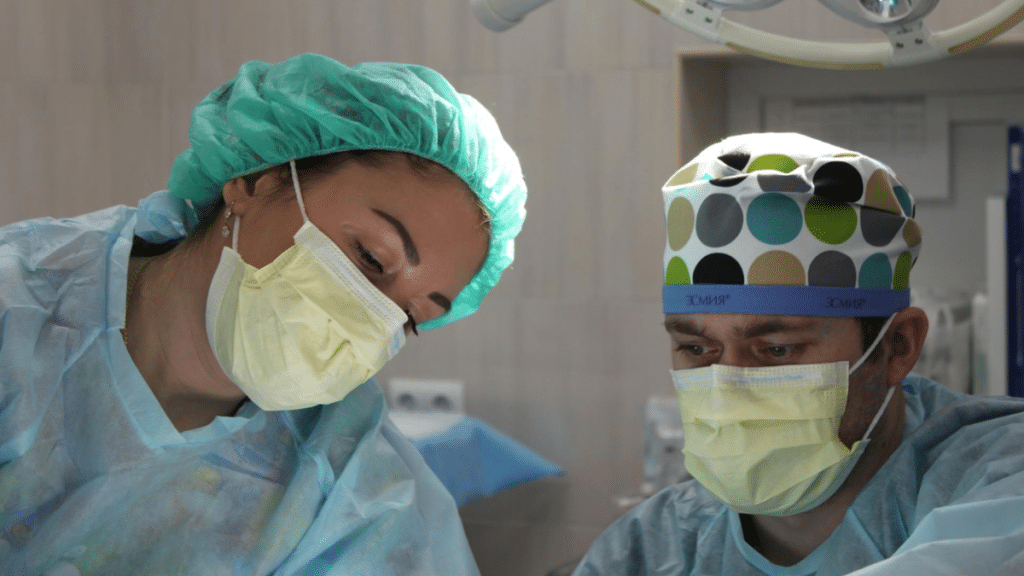Choosing a clinic for male enhancement can feel overwhelming. You want skilled hands in a safe setting, and results that match your goals. Privacy and comfort matter just as much as technical expertise. First, set clear expectations for your procedure. Know what you hope to achieve and why. Next, learn how to vet each clinic thoroughly. In this guide, you will find eight practical steps to help you narrow your choices and find a clinic you trust.
1. Define your goals
Before anything else, decide why you seek male enhancement, whether it’s for length, girth, or symmetry. Having clear goals helps you pick the right service. It also frames your discussion with the surgeon. Write down your priorities and expectations.
Be sure to avoid vague statements. Clear targets make consultations more fruitful and ensure you and your provider share understanding. You should also think about recovery time. Some procedures take days, others weeks. Be sure to factor in your daily routine. These details matter when you compare clinics.
2. Ask about procedure options
Not every clinic offers the same techniques. Be sure to ask about all available options. Some focus on injectables, while others use surgical lifts. For example, you might want to explore scrotal enhancement procedures to see if their method suits you.
Learn about anesthesia types and incision strategies. Each choice affects recovery, results, and risks. A clear explanation helps you compare pros and cons. A good clinic will guide you toward the right path. You should leave a consultation with a detailed plan and clear options.
3. Check surgeon credentials
Next, verify the surgeon’s qualifications. Start with board certification in urology or plastic surgery. Certification proves formal training in male anatomy. Be sure to also confirm hospital privileges. Surgeons with these privileges undergo regular review and audits. Don’t assume licenses are enough.
In addition, look for additional training in cosmetic genital procedures. You can also check professional associations. Membership in these groups hints at ongoing education and ethical standards. A legitimate surgeon will share this information without hesitation.
4. Check facility accreditation and standards
Visit the clinic’s website to confirm it meets national health standards. Look for accreditation by recognized bodies. Learn about sterilization processes and safety checks. Be sure to ask about safety certifications as well. It’s crucial that you choose a clean and modern facility.
Always ask about equipment maintenance and staff training. Clinics should welcome you to tour their operating rooms. You deserve transparency on hygiene protocols. High-end clinics invest in up-to-date technology, and others cut corners to save costs. Don’t be shy about asking detailed questions. A well-run clinic protects your health and peace of mind.
5. Review before-and-after galleries
Find real before-and-after photos. Look for images from other patients, and pay attention to lighting and angles. Consistent photo styles make comparisons fair. Beware of edited or misleading pictures. A credible clinic shows full results, not highlights only. Be sure to read captions for procedure details.
Additionally, ask about potential risks. Some clinics include recovery timelines and notes. This gives you a realistic view of progress. Ask if you can speak with former clients. Honest galleries build trust. Be sure to skip any clinic that hides its work.
6. Evaluate patient reviews and testimonials
Seek out patient reviews on independent platforms. Look for comments on care, comfort, and communication. Pay attention to posts that mention honest experiences. Be sure to also note any recurring praise or warning signs.
In addition, take note of how the clinic replies to criticism. A timely, respectful response shows accountability. Beware of sites that delete negative reviews. Real feedback sheds light on staff attitude. You should combine multiple sources for a balanced view. Your decision should rest on genuine voices.
7. Meet the medical team
Schedule a face-to-face meeting. You want to meet the surgeon, nurses, and support staff before your surgery. Take note of how they introduce themselves. Do they answer your questions fully? A friendly manner helps ease anxiety. Check if they explain the steps clearly.
Body language also matters. Observe if they maintain eye contact and respect your comfort level. Ask what happens if complications arise. A confident team will outline contingency plans. You deserve a care group you trust with aftercare and support. If anyone or something feels off, keep looking until you feel right.
8. Look into follow-up care and support
After your procedure, follow-up is vital. Ask how many post-op visits are included. Learn about emergency contact options. Additionally, find out if the clinic offers massage, therapy, or scar treatment. Ongoing support aids healing and comfort. Check if virtual consultations are available. This can save travel time and stress. Be sure to also ask about support groups or educational resources.
A clinic that cares doesn’t disappear after surgery. You need clear guidance on recovery milestones. Good follow-up shows a commitment to your well-being. Check if they include rehab services.
Endnote
Choosing the right clinic sets the stage for a successful enhancement journey. You first need to define your goals. You should then research the facility and check for accreditations. In addition, confirm whether the surgeon is certified, read reviews online, and compare before-and-after photos. Finally, meet the medical team and be sure to ask about follow-up care and support.
